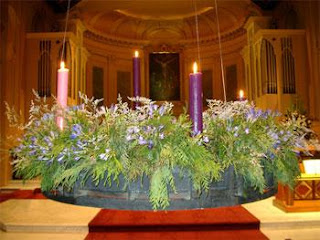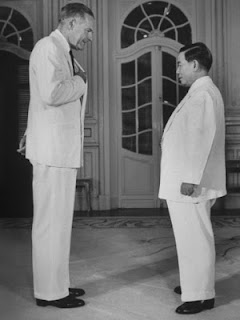David Pence writes:
 The birth of a baby in Bethlehem 2,000 years ago revealed to chosen witnesses what his mother had kept hidden for nine months, and his Father in heaven had concealed before the foundation of the world. The angels sang hosanna from heaven, three wise rulers knelt to recognize a new kingdom was being established, and all wisdom would be recast in light of the star over the manger. The Jewish shepherds were there to acknowledge their Messiah and keep away the wolves. For whenever innocence and purity show their face in this still-fallen world, the wolves gather to destroy.
The birth of a baby in Bethlehem 2,000 years ago revealed to chosen witnesses what his mother had kept hidden for nine months, and his Father in heaven had concealed before the foundation of the world. The angels sang hosanna from heaven, three wise rulers knelt to recognize a new kingdom was being established, and all wisdom would be recast in light of the star over the manger. The Jewish shepherds were there to acknowledge their Messiah and keep away the wolves. For whenever innocence and purity show their face in this still-fallen world, the wolves gather to destroy.The day after Christmas, the Church reminds all whose hearts were warmed by the babe in the manger that Stephen was stoned for attesting to the baby-Savior’s true identity. Three days after Christmas, the Church liturgically remembers the Feast of the Holy Innocents. The three wise kings had bent their knees in homage and conformed their minds in faith. But a proud and ignorant Herod ordered a horrible bloodletting, so the screams of Jewish mothers losing their sons might erase the songs of joyous angels welcoming the Son of God.
Vigilant Joseph was warned in a dream of the danger and led his holy family hundreds of miles across hills and desert to the safety of Egypt. He must have pondered the death of so many sons of his countrymen as he guarded his sacred charges during the flight.
The Church also ponders their deaths on this day, and awards to those Holy Innocents the keys to the kingdom granted to martyred saints. Possibly their deaths and celestial fate may be a lesson for all who have suffered death as an "innocent:" the children at the time of Noah’s flood, the dutiful soldier drowned in the Red Sea, the cremated and tortured prisoners of the tyrants, the villagers buried by molten lava or a raging sea. This day we reflect on how deeply ingrained and inescapable is suffering to the Christian vocation. And, possibly, this day we can also find meaning in those other deaths of innocents -- the child or mother or father who appear on God’s strange and deadly list of patients afflicted by infection or malignancy. May all who experience the mysterious reality of human suffering know the crown of glory bestowed upon the Jewish baby boys who were killed at the births of Moses and of Our Lord.
UPDATE -- From a sermon by Saint Quodvultdeus (a student of Saint Augustine):
"When they tell of one who is born a king, Herod is disturbed. To save his kingdom he resolves to kill him, though if he would have faith in the child, he himself would reign in peace in this life and for ever in the life to come.
"Why are you afraid, Herod, when you hear of the birth of a king? He does not come to drive you out, but to conquer the devil...
"How great a gift of grace is here! To what merits of their own do the children owe this kind of victory? They cannot speak, yet they bear witness to Christ. They cannot use their limbs to engage in battle, yet already they bear off the palm of victory."
FINALLY -- on this day, we Americans are mindful of our own slaughter of innocents. In some ways it is more horrible that Rachel, instead of weeping, is the one who brings her babe to be slaughtered for career or convenience. Feminism is a bloody Pharaoh. When the sacred goods and the innocents are defiled, sometimes we must cover our own and flee as did Joseph. Other times we must remember the Maccabees at Hanukkah and gather our brothers under the Father to stop the evil. For sure, we need a new approach as a profile movement organizing a culture of protection not making one more claim for rights.
































